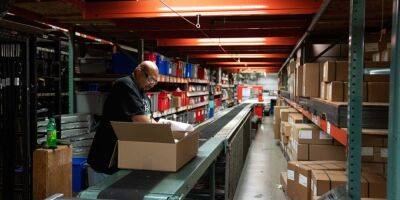Cargo bike sales soar as UK petrol prices surge
“It’s just fun,” says Killian O’Brien who bought a cargo bike a year ago as a way to go green and reduce costs by getting rid of the family car. “You feel good being out in the fresh air and getting exercise without consciously exercising.”
On his trips to do the shopping or take his daughters to gym classes near his home in Stretford, Greater Manchester, O’Brien now sees more and more folk riding similar set-ups while non-riders are always coming up to ask questions. “We get lots of conversations. Especially if the kids are in the front looking cute, or the dog.”
Cargo bikes usually feature a tub or platform that can be used to carry goods or people, balanced on two or more heavy-duty wheels. O’Brien is among several thousand private individuals who have bought one in the past year, helping almost double sales in the five months to the end of May, according to the Bicycle Association.
That comes after more than 40% growth last year and despite a general downturn in overall bike sales, which have slipped after the boom enjoyed during the pandemic lockdowns.
Dan Parsons, from retailer Fully Charged in London, said he was selling dozens of cargo bikes a week to a mix of private individuals and businesses despite sometimes long waits for orders because of post-Brexit import issues and shortages of some parts, including battery packs and chips.
Cargo bikes don’t come cheap, with prices ranging from about £2,000 for a new bike without electrical assist to more than £5,000 for the more deluxe models. Parsons said:
“We have an embarrassingly large order book. We used to be able to get a bike next day now it takes five to 10 days. If we could get more we could sell more.”
Andy Holme from Warlands cycle shop in Oxford said he has seen
Read more on theguardian.com


![Will Bitcoin [BTC] along with Ethereum [ETH] 5x this month](https://finance-news.co/storage/thumbs_400/img/2022/8/6/36172_krie.jpg)


















